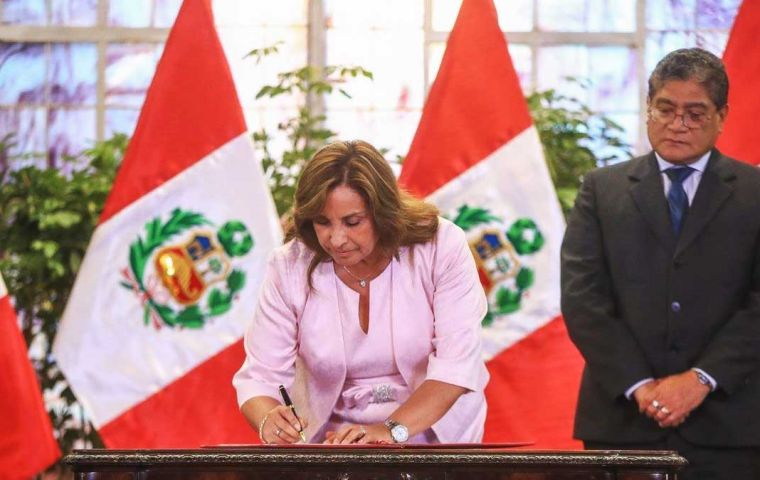MercoPress. South Atlantic News Agency
Peru: Boluarte enacts pardon for human rights violations between 1980 and 2000
 Boluarte argues that the measure recognized the State's fight against terrorism
Boluarte argues that the measure recognized the State's fight against terrorism Despite requests from the Inter-American Court of Human Rights and other international bodies, Peruvian President Dina Boluarte has enacted a controversial amnesty law, granting amnesty to military personnel, police officers, and civilians accused or convicted of human rights violations between 1980 and 2000.
The measure applies to military, law enforcement, and civilians who have not yet been sentenced. It allows for the release of those convicted who are now over 70 years of age.
Proponents of the law, including President Boluarte, argue it recognizes the sacrifices of state forces in the fight against terrorism and will help close decades-old legal proceedings.
Human rights organizations estimate the law could benefit up to 900 individuals, including military generals.
In 2024, Peru passed a law declaring crimes against humanity committed before 2002 to be time-barred, which critics called the “Impunity Law.”
The enactment of the law has been met with strong criticism. Human rights groups, like the National Human Rights Coordinator and Human Rights Watch, have called the law a “betrayal of the victims.” They argue that it creates impunity for serious crimes, violates Peru's international obligations, and denies justice to the thousands of families affected by the conflict.
In Lima, citizens, activists, and victims' relatives staged a sit-in to protest the law and Boluarte, whom they accused of being an “accomplice” to criminals.




Top Comments
Disclaimer & comment rulesCommenting for this story is now closed.
If you have a Facebook account, become a fan and comment on our Facebook Page!